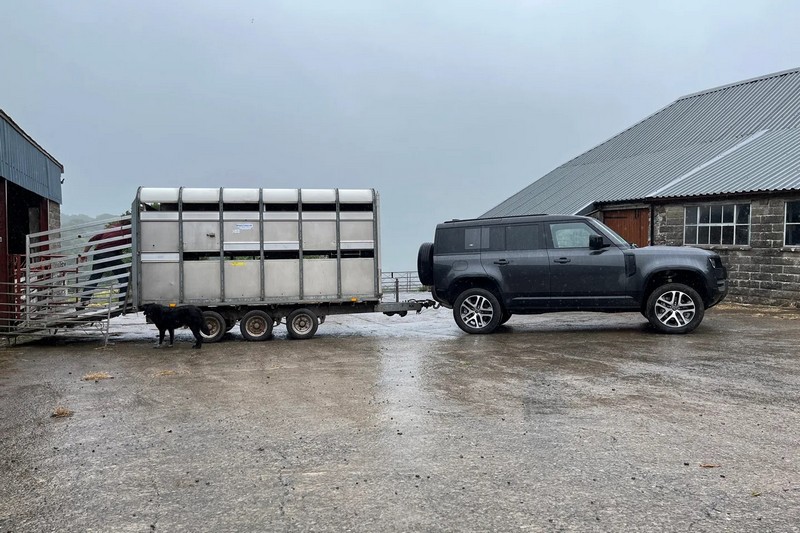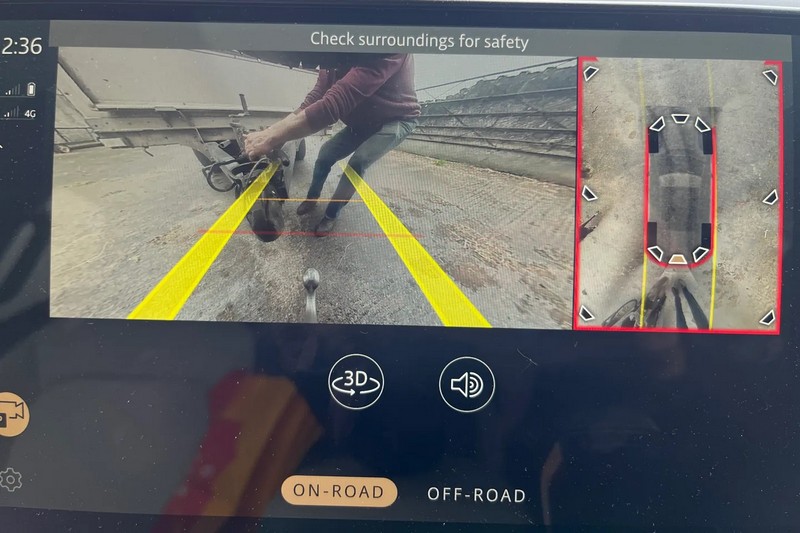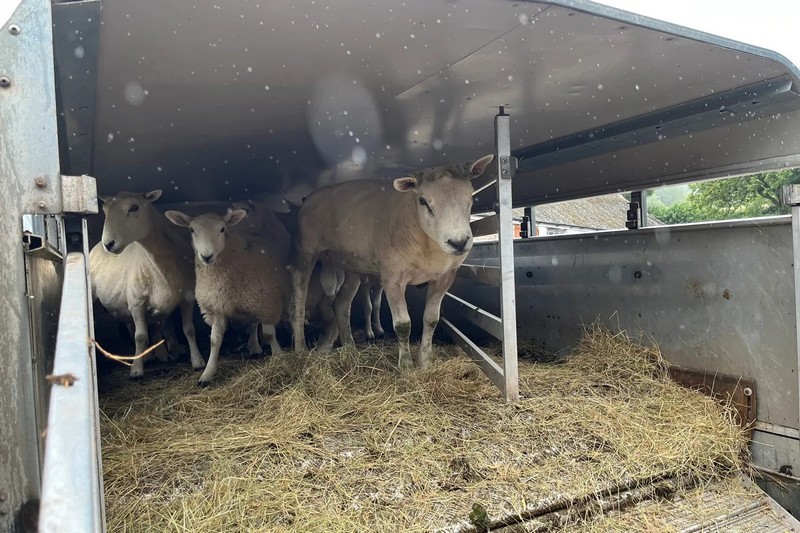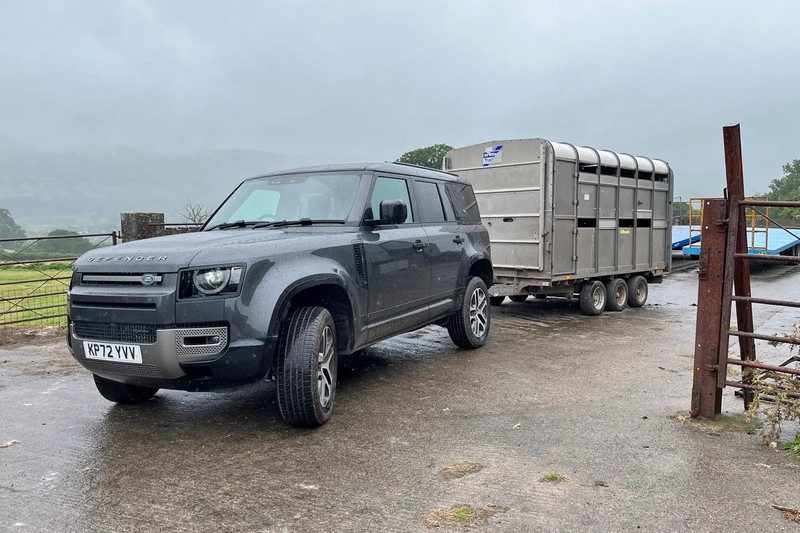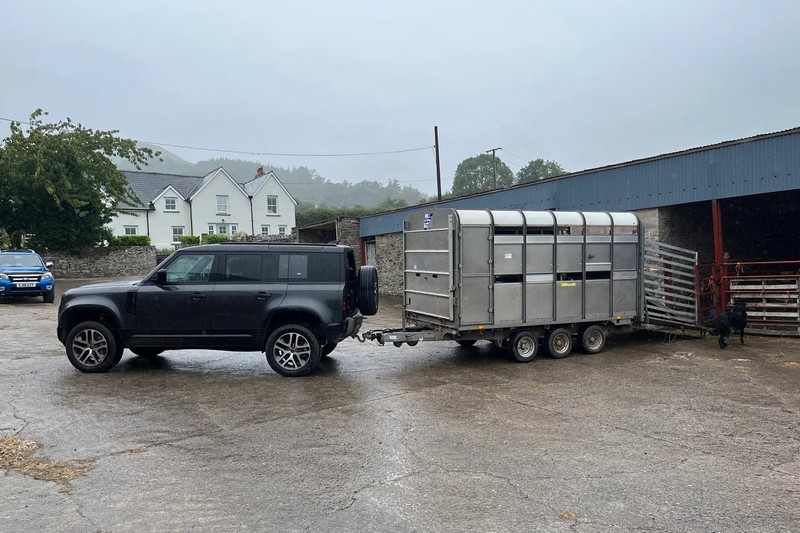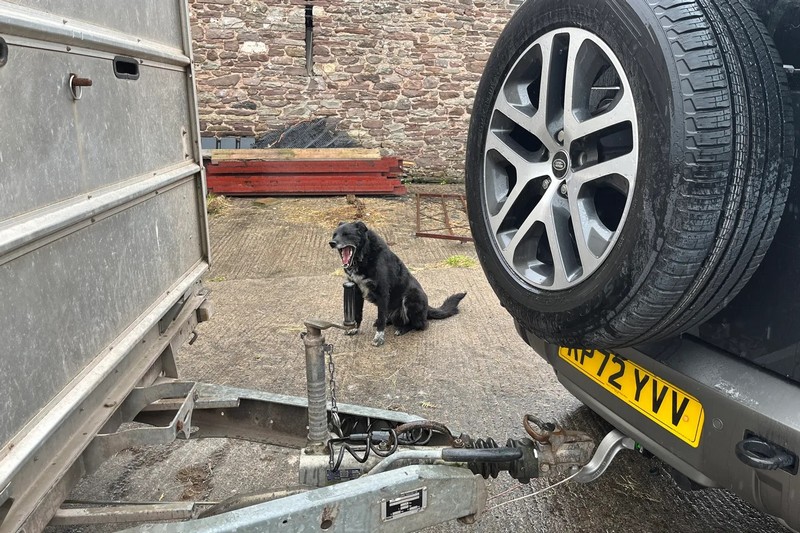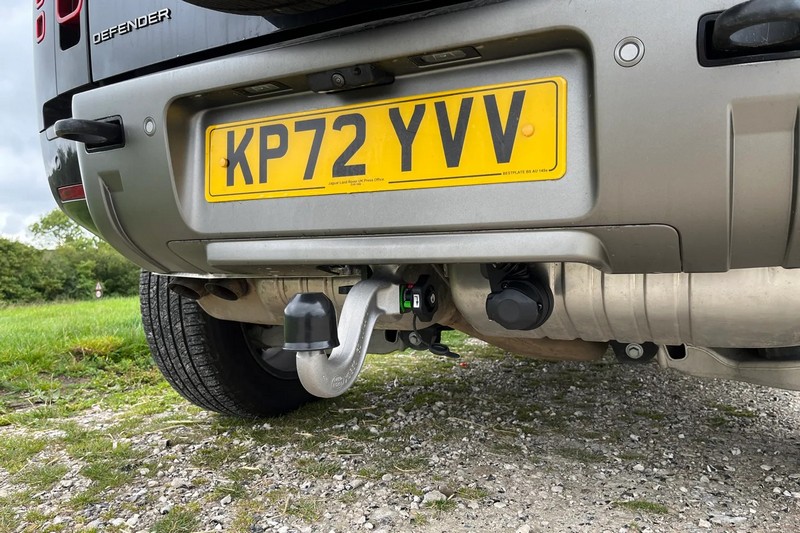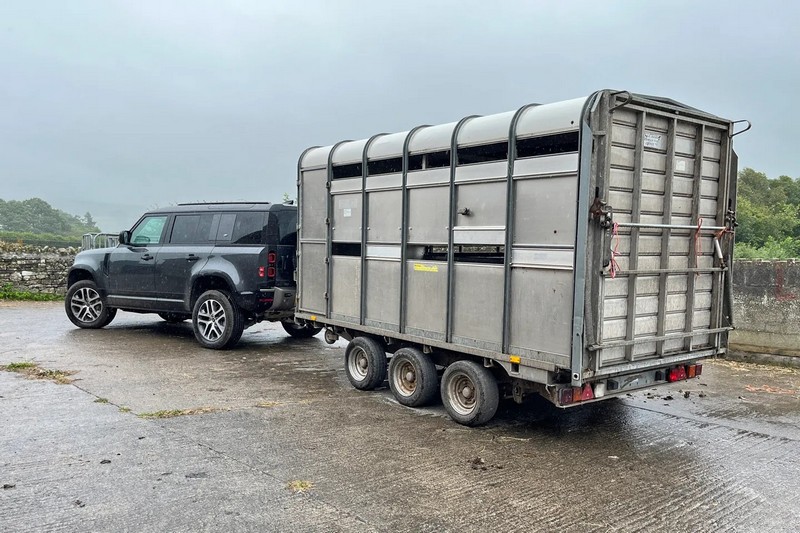Land Rover Defender 110 D300: Tackling Towing Challenges and Farm Adventures
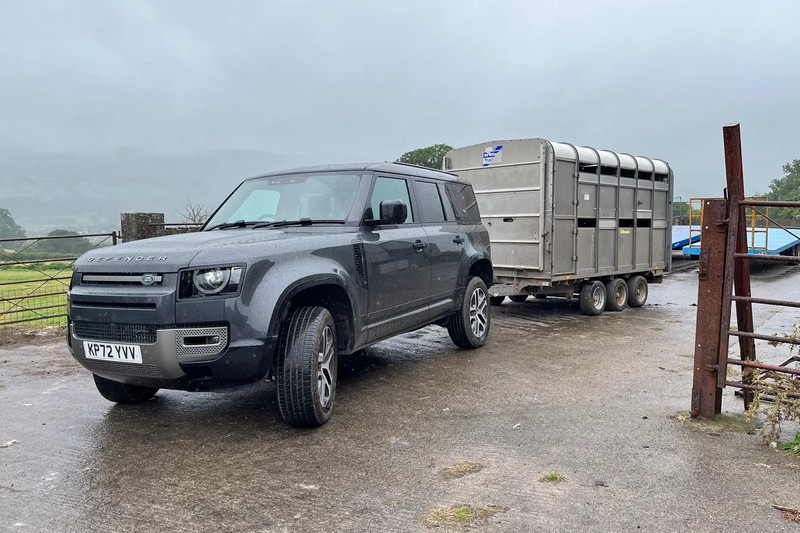
In the world of rugged off-road vehicles, the Land Rover Defender has always been a symbol of capability and resilience. However, its recent iteration, the Land Rover Defender 110 D300, has not only embraced these characteristics but has also become a versatile workhorse on the farm. In this report, we delve into the adventures and challenges faced by this Defender, highlighting its strengths and quirks.
The Road to Towing
The journey of this Defender 110 D300 took an interesting turn when it was equipped with a tow hitch. The intention was clear – to test its towing capabilities and explore its utility as a farm vehicle. However, fitting the tow bar proved to be a puzzling endeavor.
The cost of the factory-fitted tow bar was an eye-watering £2,285, which included an electrically deployable tow bar and a range of additional features like Advanced Tow Assist and All Terrain Progress Control. Opting for a retrofit by a dealer was slightly cheaper at £1,600, but it lacked the extra features and an electronically deployable hitch.
Installing the tow bar seemed like a straightforward task, but it quickly turned into a mystery. Even with the help of practical-minded individuals, including an automotive technician, a builder, and a farmer, the hitch remained elusive. The key issue was the spring-loaded knob on the removable tow hitch, which was meant to retract a ring of ball bearings, allowing it to be locked in place. However, this mechanism didn’t function as expected.
Additionally, the electrical socket for trailer connections posed a challenge. It was situated so close to the rear bumper that plugging in a trailer was nearly impossible without unscrewing a section of lower trim. This design flaw left everyone baffled.
After multiple attempts and seeking assistance from various experts, it was apparent that the Defender’s tow hitch presented an unconventional challenge. The solution required pulling the knob on the hitch sideways before rotating it, a step not indicated by any arrows or instructions. Similarly, the electrical socket was on a hinge, allowing it to rotate down below the bumper level for easy access.
The Tow Test and Farm Duties
Despite the initial hitch installation challenges, the Defender 110 D300 proved its mettle when it came to towing. With its torquey D300 engine, it effortlessly handled towing tasks, even on steep and narrow lanes in the hilly terrain of the Brecon Beacons. The straight-six engine, producing nearly 500lb ft of torque from just 1,500rpm, made light work of inclines and standing starts with a heavy trailer in tow.
Its exceptional stability on the motorway, even in crosswinds, and its reassuring braking performance made it a formidable towing companion. This Defender showcased that it could rival commercial vehicles when it came to towing capabilities, surpassing pickup trucks in terms of stability and control.
The Defender’s Legacy
While the Land Rover Defender 110 D300 faced its share of mysteries and challenges, it left a lasting impression. Its reliability and versatility in both work and daily driving scenarios were commendable. Despite a few imperfections such as a compact boot and a somewhat rudimentary tonneau cover, it excelled in its primary role as a dependable workhorse.
Over 5,000 miles of diverse driving, including off-roading and demanding photoshoots, the Defender averaged 30mpg. Its performance remained consistent, and it never faltered, exceeding expectations in terms of reliability.
In retrospect, the Defender’s journey from skepticism to admiration serves as a testament to its capabilities and adaptability. The modern Defender has redefined its role, offering a blend of off-road prowess and on-road refinement. It has proved that, even in an ever-evolving automotive landscape, it has a place as a dependable and versatile workhorse.
As this chapter with the Land Rover Defender 110 D300 comes to a close, it leaves a message for skeptics: sometimes, reevaluating one’s perspective can lead to unexpected appreciation. The Defender stands as a compelling choice for those seeking a dependable, rugged, and thoroughly enjoyable driving experience, whether on the farm or beyond.
